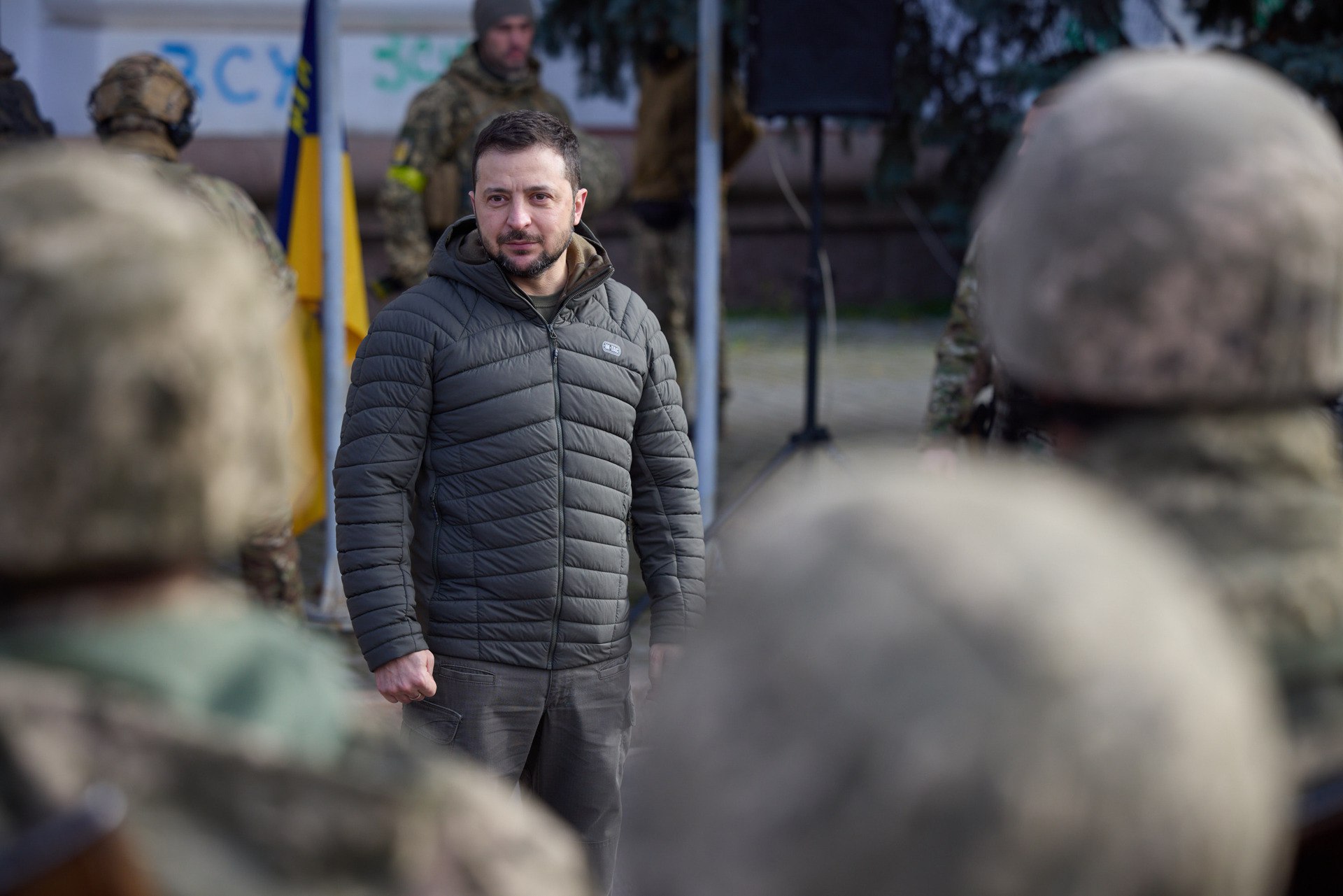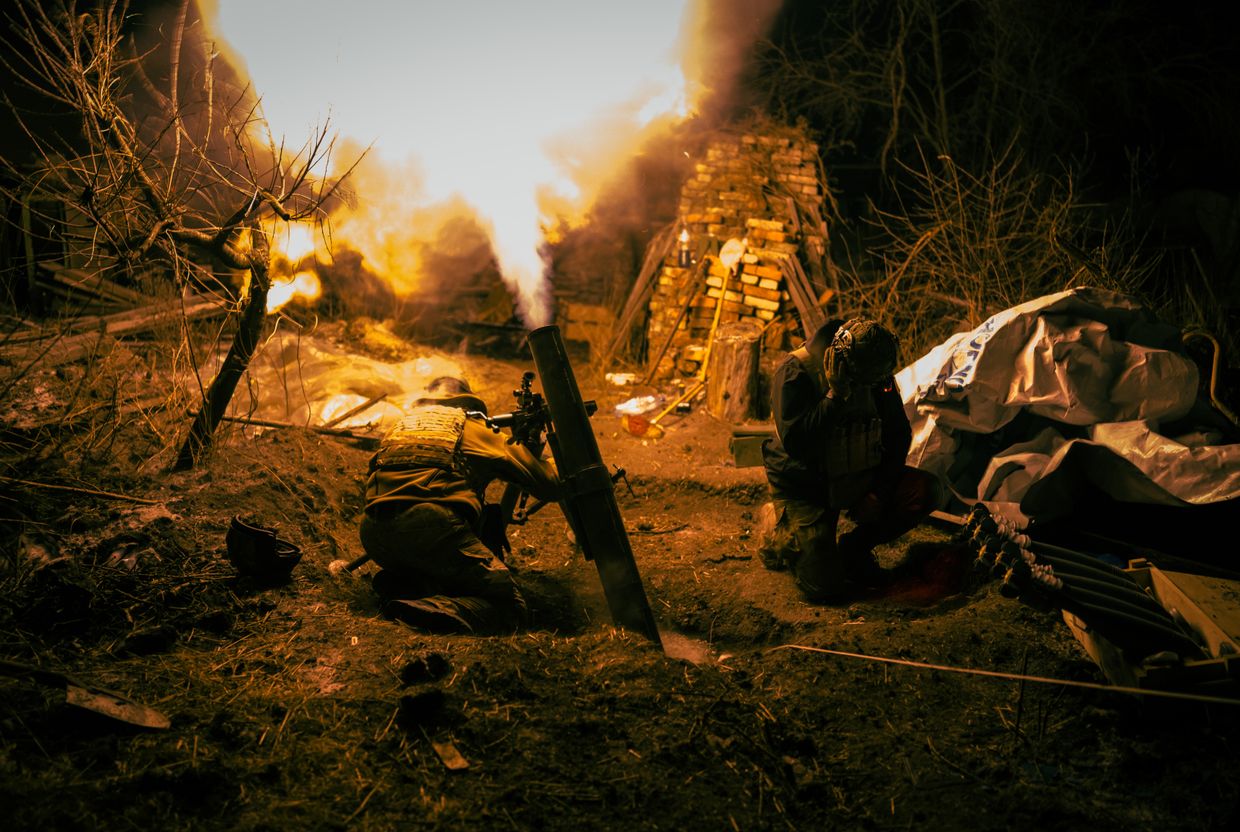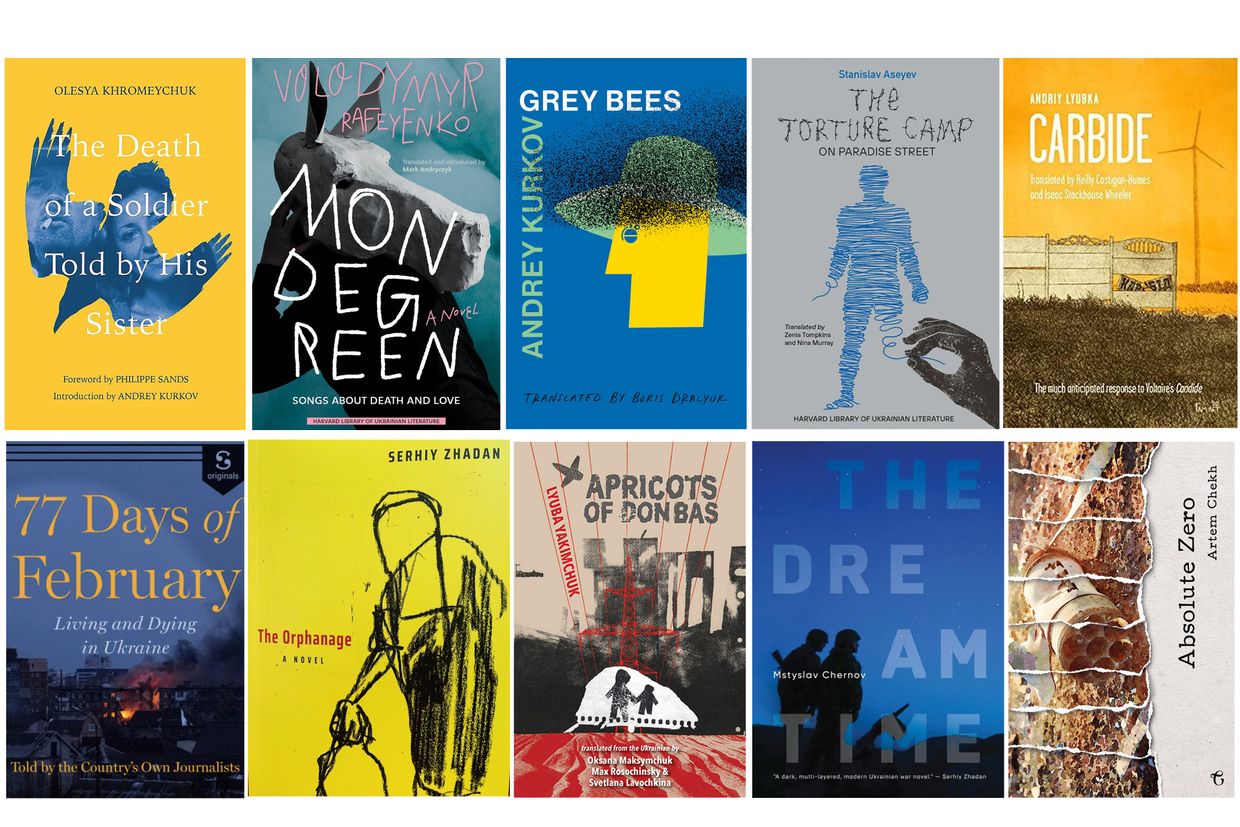Wartime book of on-the-ground reporting details Ukraine’s resilience

Warning: This book review contains graphic descriptions.
While embedded with Ukrainian forces entering Bakhmut in December 2022, the bloodiest battle to date in the Russo-Ukrainian war, journalist Yaroslav Trofimov encountered anti-Kadyrov Chechen fighters fighting on the side of Ukraine.
“It’s like Mariupol all over again,” one of the men tells him. “The Russians are wiping this city from the face of the earth.”
Trofimov, chief foreign affairs correspondent for the Wall Street Journal, has been reporting on the ground in Ukraine since the start of the full-scale invasion in February 2022. His new book "Our Enemies Will Vanish: The Russian Invasion and Ukraine's War of Independence" recounts how Ukrainians have fought back against Russian aggression despite the monumental odds stacked against them.
As ongoing debates on the failure of the most recent Ukrainian counteroffensive and the push for negotiations continue to gain traction in Western media, it's vital not to forget that Ukraine has been fighting back against Russia's genocidal wartime campaign while grappling with a limited supply of resources it desperately needs to win.
In this regard, Trofimov's book is a valuable point of reference with its retrospective of those crucial initial months of the full-scale invasion – a reminder of what Ukrainians continue to fight for.
Drawing insights from top Ukrainian officials, Trofimov notably emphasizes Russia's unwillingness to compromise on its objective of dismantling Ukrainian statehood, shedding a different light on the topic of “negotiations.”
In a closed-door meeting in Turkey during the early days of the full-scale invasion, Foreign Minister Dmytro Kuleba asked his Russian counterpart, Sergey Lavrov, what he hoped to achieve in Ukraine.
“(Lavrov) went with his classic stories about neo-Nazi Russophobic Ukraine and all this crap,” Kuleba recounts to Trofimov. "Before this meeting, I was hesitant whether he believes or plays the game. But after walking out of the meeting, I had the impression that he does believe in it.”
“This is the defensive function of his mind,” Kuleba adds. “He made his choice, he decided to play until the final whistle. They have all convinced themselves that it's true, because that's the only way you can continue with it.”
Likewise, President Volodymyr Zelensky’s adviser, Mykhailo Podolyak, recalls that during the first negotiations held in the Belarusian city of Homel, the Ukrainian delegation “realized that these are not people sent for talks but for our capitulation.”
One of Russia’s demands was for Ukraine to limit its military capabilities to the point where it would be unable to defend itself against any future attacks. During the negotiations in Turkey in March 2022, Russia stipulated that the Ukrainian military be “capped at 85,000 troops, 342 tanks and 519 artillery pieces.”
Ukrainian officials, as Trofimov explains, held no illusions going into negotiations, and their doubts were only later confirmed by the discovery of atrocities committed by Russian soldiers in Ukraine. One of the most horrific discoveries of the war came after the liberation of Bucha in Kyiv Oblast, where Russian forces had murdered 450 civilians in cold blood.
“Signs of death were everywhere: the torso and head of a woman in a garage where the Russians had likely tried to steal fuel, a man shot in the head in an auto body shop, limbs and heads protruding from an open pit covered by a thin layer of sand,” Trofimov writes.
Trofimov reminds the reader that the war crimes committed by the Russian military in Bucha have taken place in other parts of Ukraine as well. The rapid withdrawal of the Russian military from Kyiv Oblast in late March 2022, driven by the advancing Ukrainian forces, thwarted their ability to erase the evidence of their crimes. The display of inhumanity left behind shocked not only Ukraine but the global community.
It was a survey of the aftermath of the Bucha massacre that brought Zelensky out of Kyiv for the first time since the start of the full-scale invasion.
“What has happened here is genocide,” Zelensky said at the time. “It is very hard to keep talking when you see what has happened here.”
Russia denied that any atrocities had taken place, with officials claiming that their soldiers were “organically, genetically incapable” of committing the acts they had been accused of. Russian dictator Vladimir Putin even “commended the 64th Brigade that committed the Bucha atrocities for its bravery and gave it the honor of being an elite guards unit.”
Since then, Russian officials have only reiterated their intentions to continue its war against Ukraine. During a recent press conference in December 2023, for example, Putin declared there would only be “peace” in Ukraine once the Russian military had “achieved its goals.”
This understanding of Russia and its genocidal intentions has led to tension between Ukraine and its allies since the start of the full-scale invasion, given the allies’ hesitancy to provide heavy weapons for fear of escalating the war.
While Ukrainian officials have repeatedly expressed their gratitude for the weapons that the country has received, that ongoing fear of escalation has led to the delay of useful military aid such as Leopard and Abrams tanks, HIMARS rockets, Patriot missile defense systems, and F-16 fighter jets that could have saved countless Ukrainian lives and brought the war to an end sooner.
Additionally, as Trofimov points out in the book, Russia’s so-called “red lines” that the U.S. and other countries are afraid to cross have “proved very elastic” after Ukraine was supplied with military aid that was previously considered out of the question.
“Every time the United States decided to step up its involvement, Moscow responded with only bluster and empty promises to destroy Western weapons convoys the moment they entered Ukraine,” Trofimov writes.
Amid the most important moments from February 2022 onward, such as the first major strike on the Crimean bridge in October 2022 or the liberation of Kherson later that November, Trofimov makes sure not to overlook the events of 2014 and how they shaped the outlook of many Ukrainians in regard to Russian aggression.
One of the best examples is Russia’s repeated failure to capture Kharkiv, Ukraine’s second-largest city, which became home to around 100,000 refugees from the East fleeing Russia’s war at its onset 10 years ago. The city continues to stand as a critical outpost in Ukraine’s resistance.
Russian militants attempted to seize Kharkiv, as it had the cities of Donetsk and Luhansk, after the EuroMaidan Revolution in 2014. They ultimately failed, as they would later during the Battle of Kharkiv in the winter and spring of 2022.
Kharkiv native Kostiantyn Nemichev, who heads the Ukrainian special forces unit Kraken, tells Trofimov that back in 2014 the mood in the city had once been an estimated “70 percent sympathetic to Russia, with only a third of the population identifying with the Ukrainian cause.”
However, “this proportion had since flipped (given the events of the past decade) with most of Moscow’s remaining supporters driven by a sense of nostalgia for their Soviet youth, rather than Putin’s ‘Russian world’ irredentism.”
Russia has blinded itself on the false belief that Ukraine’s eastern regions are home to Russian speakers "oppressed" by Kyiv and waiting for liberation. The dark irony of this is that eastern Ukraine has borne the brunt of Russian aggression for the past decade.
According to Trofimov, Russian forces “did not have a proper plan for capturing Kharkiv, but they were so sure the population was overwhelmingly on their side that many of them had brought along parade uniforms, expecting to be greeted as liberators.”
The defiance of locals in Kharkiv extended to other parts of the region. The authorities in Kupiansk, a city close to the border with Russia, yielded to Russian forces. But “scores of enraged local citizens, waving Ukrainian flags, tried to attack the mayor’s car on Kupiansk’s main road,” Trofimov writes. The city would be liberated by Ukrainian forces later in September 2022.
Trofimov’s prose style throughout the book is impressive, conveying the brutality of war without forsaking journalistic integrity for sensationalism to maintain the reader’s attention. He also allows himself moments of personal reflection without overstepping the line into a full-blown memoir, such as a scene from October 2022 that coincided with Russian forces’ withdrawal from Lyman in Donetsk Oblast.
Gazing at the bodies of dead Russian soldiers, Trofimov notices how “the men sprawled on the asphalt ahead of us seemed alive, as if taking a quiet nap” compared to the charred remains of Russian soldiers near destroyed tanks he had witnessed elsewhere. One of them was missing a hand.
Trofimov, who was born in Kyiv, suddenly finds himself overcome with anger at the sight of them, trying to understand why they had come to Ukraine and what they had died for: “Putin’s megalomania? The wounded pride of old men whose empire collapsed in 1991, just as they were supposed to inherit it? The Russian idea, whatever that may be?”
Ukraine’s path to victory is long and difficult. The full-scale war has entered its third year, and there is no clear understanding of when it will end. Entire chapters of history appear to be written by both sides on a weekly basis, as evidenced by the pivotal events Trofimov touches upon in the epilogue, such as the start of incursions into Russia’s Belgorod Oblast in May 2023 and Wagner mercenary leader Yevgeny Prigozhin’s short-lived “March for Justice” on Moscow in June 2023 following the battle of Bakhmut.
There are many more chapters to be written on this war. In the meantime, Trofimov’s "Our Enemies Will Vanish: The Russian Invasion and Ukraine's War of Independence" distinguishes itself as an outstanding example of how on the ground reporting should be done.
"Our Enemies Will Vanish: The Russian Invasion and Ukraine's War of Independence" by Yaroslav Trofimov is now available to purchase from most major booksellers.
Note from the author:
Hi, this is Kate Tsurkan, thanks for reading this article. There is an ever-increasing amount of books about Ukraine available to English-language readers, and I hope my recommendations prove useful when it comes to your next trip to the bookstore. Ukrainian culture has taken on an even more important meaning during wartime, so if you like reading about this sort of thing, please consider supporting The Kyiv Independent.













